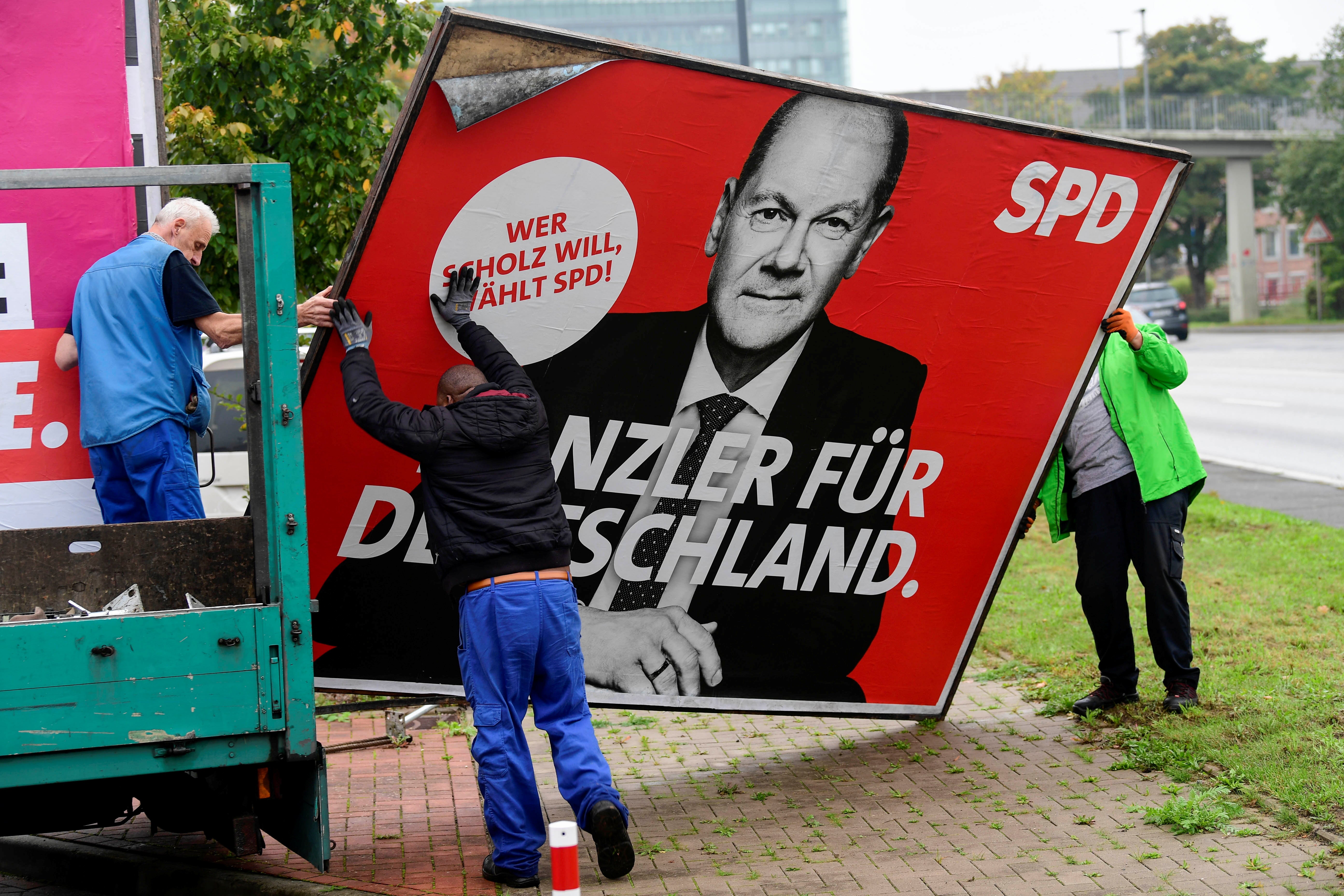What do the German election results mean?
Sean O’Grady explains what happens next as the parties vie to form a new government


Perhaps the best way for a British audience to understand the outcome of the German elections is to think back to the hung parliament results at Westminster in 2017 and, more appositely, in 2010. At that point it was a “parliament of losers”, but it was obvious that the Labour government of Gordon Brown had lost its mandate to govern, or even to lead a governing coalition, even though the main opposition party hadn’t done enough to win a majority, though it was the largest party. The “winners” were the smaller parties, and in particular the Lib Dems (back in the lost world of Cleggmania). The one thing that could be said without much contradiction in 2010 was that Labour lost.
The parallels are far from precise, but the equivalent in Germany now is to acknowledge that the Christian Democrats (CDU/CSU) lost the election, with the lowest share of the vote in the history of the federal republic and almost 16 years in power under Angela Merkel, who tried, and failed, to hand her mantle to Armin Laschet. The Social Democrats (SPD), who’d actually shared power with Merkel for much of the past two decades, came back from the brink of oblivion, to just edge a lead and the formal title of winner. The party leader and finance minister in the Merkel government, Olaf Scholz, has certainly claimed as much. Yet both “major” parties only won about a quarter of the vote each, and would barely get a majority to form another “grand coalition”, which is now out of the question politically.
So fractured is the German party system now that it would need three parties to be assured of majority government in the Bundestag. All the parties have ruled out dealing with the extreme right AfD (Alternative for Germany), which makes the arithmetic even harder. The far-left Link, another minority player that inherited the old East German communists, are another fringe party that the others would prefer not to have to tangle with. So, the Greens and the Free Democrats (FPD, a sort of market-liberal centre party) are both the power brokers now, but the trouble is that these two smaller parties have little in common, and will be making demands of the bigger parties in mutually exclusive directions.

There are lots of possible tripartite combinations, with colourful names, after the party colours (CDU/CSU = black, SPD = red, FPD = yellow, Green = green). They include blends such as “traffic light” (SPD, FPD, Greens), “Jamaica flag” (CDU/CSU, FPD, Greens), and “Kenya flag” (CDU/CSU, SPD, Greens). The reality is that, most likely, Scholz will have to stitch some sort of deal with the Greens and the Free Democrats, but it will take time. They’d like to get things done by around Christmas, so that Merkel, a lame-duck chancellor, doesn’t have to make another New Year’s address.
But there’s no sense of crisis. Unlike in the UK and other polities, there is no easy provision in the German constitution for another election, so they know that they have to construct something, and the talks are progressing calmly and steadily, as they did for some months after the inconclusive 2017 election. Meanwhile, the familiar figure of Merkel will continue to run the largest economy in Europe and no one will mind very much (she might have won a fifth term had she wanted it).
Yet there is something of a vacuum and some uncertainty about Germany’s present and future. Merkel, aside from her obvious personal status, can’t claim any great current democratic legitimacy, in particular as France prepares to take over the EU presidency and in the run-up to the Cop26 conference in Glasgow in November. Fortunately for all concerned, there seems an emerging consensus – not least because of the Greens’ electoral showing – about the green agenda, and some acknowledged agreement that the German economy, with its large manufacturing sector and use of coal, is dirtier than it ought to be and needs a clean-up. On the other hand, Merkel is no position to launch any dramatic initiatives or take risks.
It is a paradox. For most of the post-war era, Germany enjoyed stable party politics under a two-and-half party system (CDU/CSU, SPD, FPD). Now its party system resembles a kaleidoscope, and the proportional representation system is evolving into an Italian or Dutch-style level of voter choice, and potential instability. Yet there has been a very long period of CDU-led government under a single chancellor. Merkel has dealt with, for example, three French and American presidents, and four British premiers, and she’s been an anchor for the continent if not the world in turbulent times. The one thing we know for sure is that that will no longer be true, whoever ends up in power in Berlin.



Join our commenting forum
Join thought-provoking conversations, follow other Independent readers and see their replies
Comments